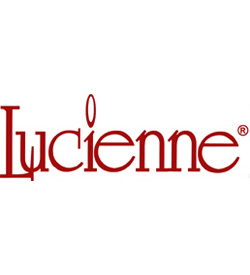A Guide to Lucienne Butane
Looking back, it is hard to believe that our ancestors used pieces of rock — flint — to create sparks that led to fire. What is equally amazing is how long it took for human ingenuity to create flint-based lighters, the forerunner to today’s piezoelectric torch lighters and other refillable butane powered devices. In fact, flint lighters, those archaic “rock” lighters, were only invented in 1823.
A Lucienne History Lesson
Most people don’t know this interesting little fact: Lucienne butane is a private label brand made by United Kingdom-based Keen-Newport and distributed throughout the world by Chicago, IL-based East West Trading Corporation. Keen-Newport’s history dates back to 1963, when industry veterans and close friends Geoff Keen and Ron Gibbons joined forces to design a high quality but inexpensive refillable lighter that would perform under the most stressful conditions.
East West Trading Corporation also markets Lucienne butane in refill canisters and with lighters, and while we currently only carry the butane we may also start to sell the lighters. The company also sells butane refill torch lighters and other devices such as lamps and outdoor cooking grills.
MSDS Information
Like other reputable butane brands, Lucienne produces a comprehensive Material Safety Data Sheet (MSDS) which lists information in several categories:
- Identity of the substance and company information
- Ingredients
- Hazards identification
- First aid measures
- Fire fighting measures
- Accidental release measures
- Handling and storage
- Exposure controls and personal protection
- Physical and chemical properties
- Stability and reactivity
- Toxicological information
- Ecological information
- Disposal considerations
- Transportation information
- Regulatory information
- Other information

How Butane Torch Lighters Work
A refined butane powered torch lighter is an amazing and simple device. Instead of using a flint and wheel to generate a flame, these devices utilize piezoelectricity to generate a spark at the push of a button. Pushing a button activates a tiny spring loaded hammer that in turn strikes a piece of quartz which generates a spark, ignites the butane, and results in a flame.
Because they are refillable, these lighters produce a consistent flame after hundreds of lights, a far cry from the usefulness of a disposable model. Refillable torch lighters usually come with a manufacturer’s warranty and can be repaired if needed.
Keep Your Torch Lighter Working Year Round
Assuming that you have purchased a lighter that uses a butane refill bottle, how do you maintain it? What are some tips to care for it to ensure the device works year round, one use after another without fail? Here are other relevant questions and answers you may find useful.
- How do I refill my lighter? In all cases, refillable lighters come with instructions from the manufacturer on how to refill the device. Keep them handy. Generally speaking, make sure the lighter is empty; turn the flame adjustment control to the off position; turn the lighter upside down, and attach its fuel valve to the corresponding valve on the butane refill canister. Once the lighter is full, let it sit for several minutes before testing it.
- How do I store my lighter? A lighter should be kept away excessive heat or cold, and should not be stored in your vehicle for any length of time. If you are not going to use the lighter for another few weeks, drain the remaining butane before storage.
- I’ve heard I can refill my lighter quicker if I store it in the freezer first. Is that true? For the most part, yes. If your lighter is cold, it will draw Power 5x butane or another butane more quickly out of the refill canister.
- My lighter sparks, but no fuel is coming out. What is going on? Chances are the lighter is empty and needs to be refilled. You may also want to check the flow valve that adjusts the flame height and ensure it’s not completely turned shut.
Repair or Replace?
The question of whether to repair or replace your torch lighter or other butane refill-powered device is a matter of preference and cost. If you are only a casual smoker, or someone who uses a lighter to light birthday candles or an occasional camp fire, then inexpensive, store-bought models are perfectly acceptable — when one runs out of butane or breaks, just buy another one. If you regard a lighter as an important accessory and have purchased a high quality Lucienne lighter or other refillable model from Newport or Vector, then by all means take steps to maintain it and send it to the manufacturer for repairs as necessary.
No matter what you use refined butane for — whether for cooking, powering an industrial grade torch, or refilling a lighter — it is important to remember it is still a flammable gas and should be treated with care and respect. For questions on butane storage and maintenance tips for your butane powered devices, contact the professionals at Butane Source today.
